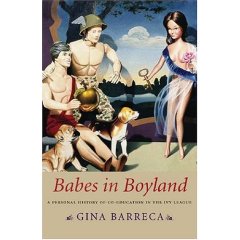
In this book, Joel Achenbach goes looking for aliens. Captured by Aliens is a survey of the science of space exploration and an earnest attempt to uncover any evidence (a clue, a hint, a sliver, a slim hope!) of extraterrestrial life. The attempt is vain, but Achenbach leaves no stone unturned. Eventually he even reaches the point of exploring (briefly) the concept of God. There's your extraterrestrial life.
From a scientific point of view, the search for life in outer space comes up empty. What Achenbach does find is a bunch of human beings who are strongly invested in the idea of alien life forms. Very likely, these people are banding together and creating mythologies about space creatures because they are human, and because they are alienated from the larger culture.
Humans are social animals. We are hard-wired to form kin groups and affinity groups, age-based groups and mutual benefit societies. We can't help ourselves. At the same time, we have an awareness of our individual existence, and for some of us that individuality is so fragile, or so satisfying, that we avoid the group experience, or it avoids us. Sometimes our modern post-industrial society makes it difficult for people to create meaningful communities. Kurt Vonnegut, in his novel Slapstick, refers to people who "have had to believe all their lives that they were perhaps sent to the wrong Universe..." That goes a long way towards explaining the alien-o-philes. Captured by Aliens quotes a member of the Heaven's Gate suicide cult: "Maybe they're crazy for all I know. But I don't have any choice but to go for it, because I've been on this planet for thirty-one years and there's nothing here for me." (p. 211) Hi ho. (as Vonnegut would say...)
What's a little ironic is that, although Achenbach makes it clear that he is humoring the pseudo-scientific folks without being tempted to their point of view, he is very sympathetic to them, acknowledging that they are engaged in the same sort of search that he is, just with different rules. And they recognize him, too. It's really not surprising to find that some of the UFO-believers become convinced that the author is one of them, that he is an alien himself. In effect, he is "captured" by "aliens" in the course of writing the book. (But he escapes and lives to tell the tale, luckily for us.)
Fast forward a few years, to the birth of the Achenblog. The blog has collected, nay, captured a seemingly diverse accumulation of individuals. Looking for the common thread is tricky. People describe themselves as gnomes, geeks, nerds, mutants. Apparently the group contains a disproportionate number of high school valedictorians, and a relative dearth of prom queens and football team captains. If you want to fit in there, a sense of humor is essential--but it can be warped, or dark, or goofy. It's all right if you have memorized Monty Python and the Holy Grail or The Princess Bride. A community has formed, albeit a fluid one with ever-changing participants. It's an artificial extended family, very much in the spirit of the ones Vonnegut imagined in Slapstick ("Lonesome No More!" is that book's subtitle) This time it's Achenbach who has captured the aliens, or at least the alienated.
===========================================
Test your alienation level here:
Here are my scores:
Meaninglessness = 5
Cultural Estrangement = 23
Powerlessness = 10
Normlessness = 13
Estrangement from Work = 12
Social Isolation = 16
Scores from 5 to 11 could be considered "low,"
from 12 to 18 "moderate,"
and from 19 to 25 "high."
===========================================
===========================================
...and another thing:
Jonathan Franzen says being a nerd/geek/mutant is not the only path to alienation; there's also the literary route. Here he quotes Stanford professor Shirley Brice Heath:
"...the social isolate--the child who from an early age felt very different from everyone around him. This is very, very difficult to uncover in an interview. People don't like to admit that they were social isolates as children. What happens is you take that sense of being different into an imaginary world. But that world, then is a world you can't share with the people around you--because it's imaginary. And so the important dialogue in your life is with the authors of the books you read. Though they aren't present, they become your community."
Franzen expands on this idea: "...simply being a 'social isolate' as a child does not...doom you to bad breath and poor party skills as an adult. In fact, it can make you hypersocial. It's just that at some point you'll begin to feel a gnawing, almost remorseful need to be alone and do some reading--to reconnect to that community.
"...readers of the social-isolate variety are much more likely to become writers than those of the modeled-habit variety. If writing was the medium of communication within the community of childhood, it makes sense that when writers grow up they continue to find writing vital to their sense of connectedness. What's perceived as the antisocial nature of 'substantive' authors, whether it's James Joyce's exile or J.D. Salinger's reclusion, derives in large part from the social isolation that's necessary for inhabiting an imagined world."
How to be Alone, pp.77-78
